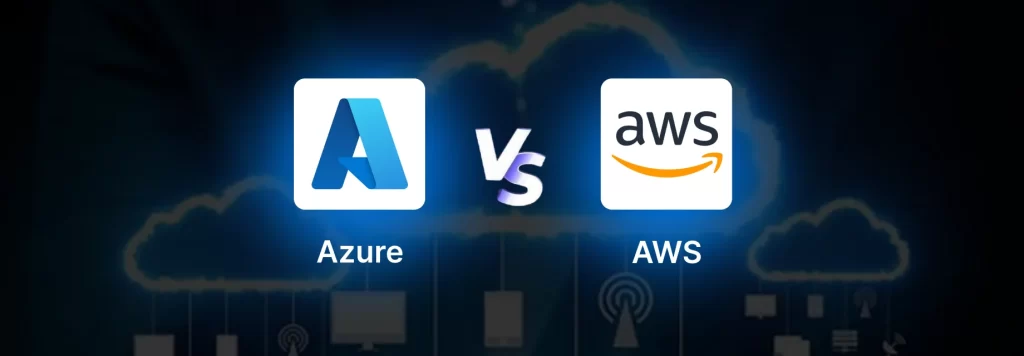Azure vs AWS: Which Cloud Platform is best for 2025?
In 2025, cloud computing is advancing rapidly as businesses prioritize digital transformation, scalability, and efficiency. Microsoft Azure and Amazon Web Services (AWS) have established themselves as key players, offering essential infrastructure to support startups, enterprises, and public sector organizations globally. Choosing between Azure vs AWS is more than a technical decision as it directly impacts cost, performance, and business continuity. Both platforms offer a variety of features, services, and tools for different industries, but their subtle differences can determine the success of your cloud initiatives.
In this article, we will discuss the key differences between AWS and Azure, their use cases, pricing & cost efficiency, data center availability, and more.


What Makes Comparing Azure vs AWS important?
The AWS vs Azure comparison remains crucial for several reasons:
Market Leadership: The cloud computing market is expected to reach $2,291.59 billion by 2032, according to Fortune Business Insight report. Together, AWS and Azure dominate over 60% of the global cloud market, making them the most trusted platforms for critical applications, data storage, and infrastructure. Their ongoing competition drives innovation, providing businesses with advanced tools and solutions. Extensive Offerings: Both platforms offer a vast ecosystem that includes:-
- Compute resources (virtual machines and containers)
- Storage solutions (Object, File, and Block Storage)
- Databases (relational and NoSQL)
- AI/ML capabilities
- Networking and security tools
Azure vs Aws: Data Center Availability
Global data center presence is essential for low latency, high availability, and disaster recovery.- Azure: Azure leads with 60+ cloud regions, providing the broadest coverage, making it ideal for businesses needing local access and regulatory compliance.
- AWS: With 30+ regions and 99+ Availability Zones, AWS offers strong global scalability and continues expanding to meet growing demand.
Azure vs Aws: Pricing and Cost Efficiency
Both AWS and Azure follow a pay-as-you-go pricing model, allowing users to pay only for what they consume. However, their cost-saving strategies and pricing structures differ.
Azure: More economical for organizations leveraging Microsoft ecosystems, with benefits like:
-
- Hybrid Benefits: Discounts for reusing Windows Server or SQL Server licenses.
- Pricing Transparency: Built-in tools to estimate and optimize costs efficiently.
-
- Reserved Instances (RIs): Prepaid instances with substantial discounts.
- Spot Instances: Suitable for flexible workloads, with savings of up to 90%.
- By admin
- No Comments



